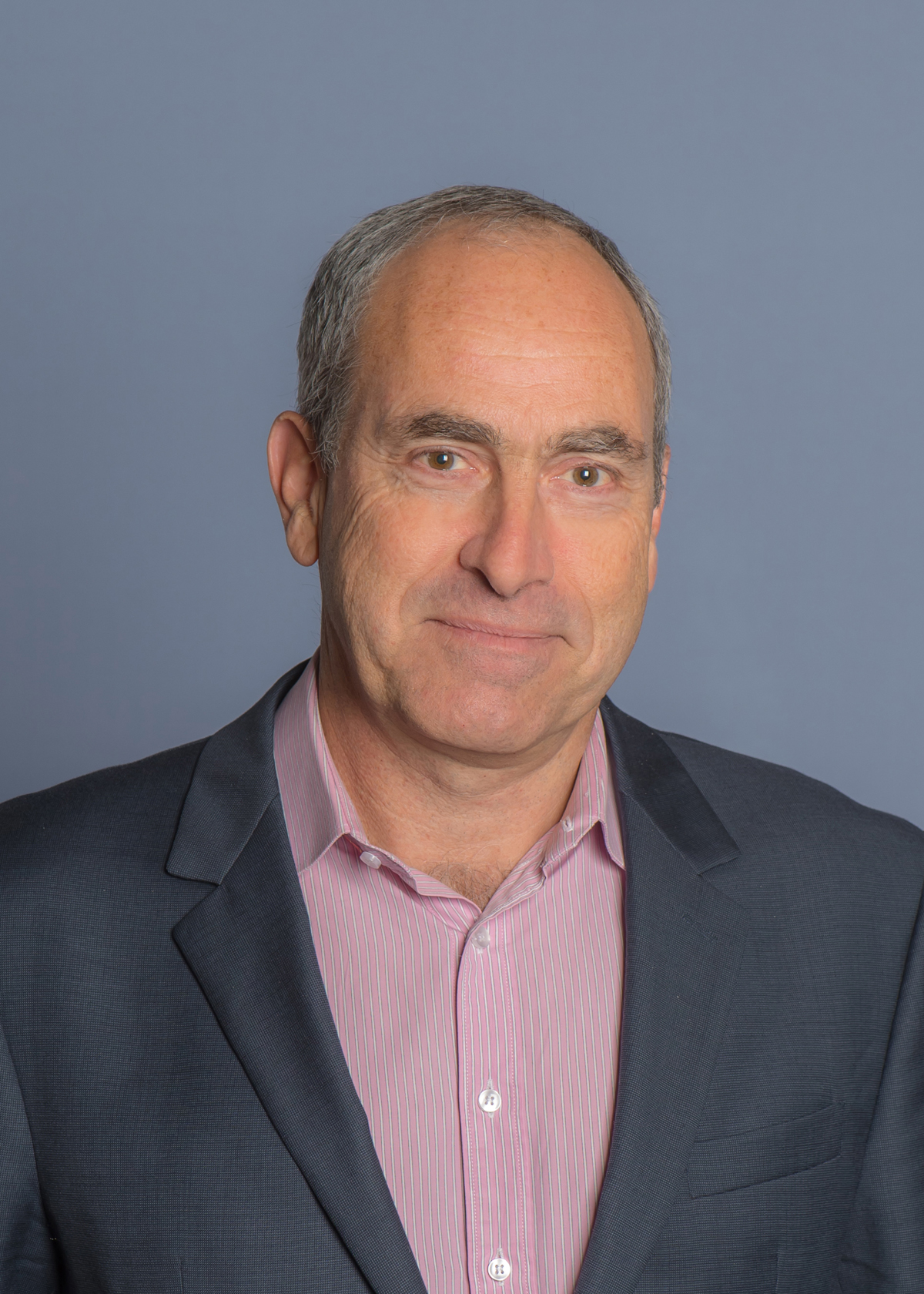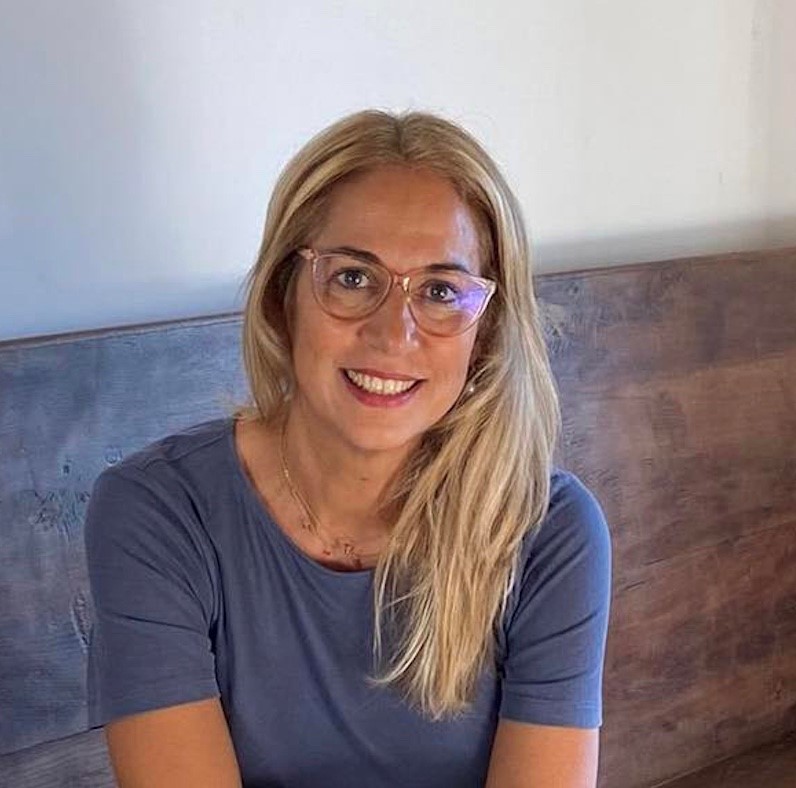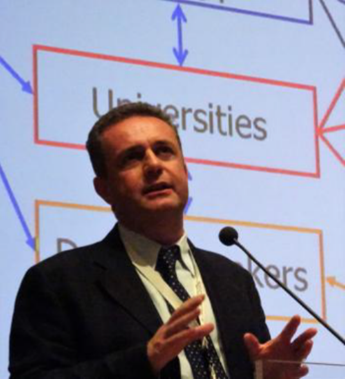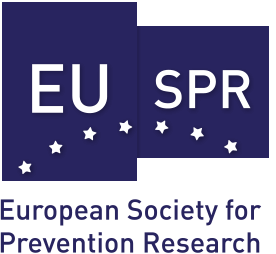15th EUSPR Conference – 11 to 13 September 2024, Cremona, Italy
Our theme this year is ‘Prevention in and with Communities’ and our keynotes and special sessions will focus on discussing the challenges and opportunities for prevention science when working in and with community settings and systems. Stay tuned as we announce more speakers in the upcoming weeks.

Deakin UniversityKeynote Speaker
Advancing prevention using community coalition models: Evidence from Communities That Care

University of MinhoKeynote Speaker
Youth risks, challenges, and agency within communities: When positive youth development matters and so does the ecological perspective

University of LausanneKeynote Speaker
Cultural evolutionary behavioural science in public policy

Health Promotion Unit (Lombardy Region Welfare Directorate)Keynote Speaker
Health Promotion in the Lombardy region: a long path towards sustainability

ATS – Health Protection Agency of the Metropolitan City of MilanKeynote Speaker
Health Promotion in the Lombardy region: a long path towards sustainability
| Keynote Speaker | Short Biography | Title | Abstract |
| John Toumbourou | Professor Toumbourou is based at Deakin University, Australia. He is the Chair in Health Psychology and the Co-Leader in Translation Sciences within the Centre for Social and Early Emotional Development (SEED). He serves as the voluntary Director and Chair of the not-for-profit company Communities That Care Ltd. In 2023 he received the Presidential Award for Lifetime Contribution from the Society for Prevention Research. He is a prominent prevention researcher and social advocate in areas related to child and adolescent mental health promotion and the prevention of alcohol and drug problems. | Advancing prevention using community coalition models: Evidence from Communities That Care | This presentation will outline how communities can be supported to achieve healthy environments for children, youth, and families. Prevention science offers community coalitions the tools and resources to find solutions to the many problems and challenges that undermine healthy community environments. This presentation will describe progress and current knowledge of how community coalitions are contributing to healthy local environments for children, youth, and families. Progress using the Communities That Care coalition training approach in Australia and internationally will be described. This approach has evidence for preventing alcohol and drug use, behaviour problems, crime, and injury. New prevention science challenges for community interventions will be outlined in promoting equity, positive youth development, climate action and preventing harm from cannabis legalisation. |
| Teresa Freire | Professor Teresa Freire is based at University of Minho, Portugal, in the School of Psychology, Department of Applied Psychology. She belongs to the Psychology Research Center (CIPsi), being the Development and Psychopathology Unit Coordinator, leading the Research Group on Positive Development and Optimal Functioning. She is the President of the General Assembly of the Psychological Association of the University of Minho, where she coordinates the Adolescents´ Psychology Consultation supporting adolescents’ risks and challenges in their daily lives, with related significant adults. She is member of the Scientific Coordination Team of the Tutoring and Mentoring Programs (Skill Up Project) empowering students through transversal skills. She coordinates nationally the Project: To Be(+)plus, one of the Gulbenkian Academies of Knowledge in Portugal that integrates three Psychological Group Intervention Programs aimed at promoting positive youth development (13-25 years old). She belongs to the World Leisure Organization, being the chair of the Special Interest Group on Leisure and Well-Being. Her work is devoted at promoting positive development contributing for youth flourishing and worthy lives: • Psychological intervention to promote Positive Youth Development • Leisure and climate actions in youth: from daily life contexts to healthy life span trajectories • Well-Being and youth mental health: from vulnerability to skillfulness | Youth risks, challenges, and agency within communities: When positive youth development matters and so does the ecological perspective | Daily life is one of the main development sources for young people, shaping each life trajectory within the complexity of human-environment resources. Societies and communities are increasingly involved in creating contexts that facilitate the construction of meaningful lives, involving a complex system of significant relationships in and with communities. This presentation will focus on positive youth development and optimal functioning models applied to the interrelation between prevention and promotion, and their impact on youth mental health and well-being. Results from Portuguese promotional programs (e.g., the national Project: To Be+) will be shared. Following the “four-front approach,” we will discuss how strengths and assets/resources and opportunities (vs. deficits and vulnerabilities) need to be considered to generate new insights supporting new solutions for enhancing healthy life trajectories. Leisure and climate actions will be highlighted under Bronfenbrenner’s ecological model as topics targeting youth today. Conclusions will underline possible guidelines to improve and empower individuals and communities and create opportunities for young people to be agents of their own positive development. Future research and community practices will also be integrated into this presentation. |
| Robin Schimmelpfennig | Robin Schimmelpfennig is a PhD Candidate at the University of Lausanne and an affiliated researcher at the London School of Economics. Prior to his PhD, Robin did his MSc at LSE and worked at Fehr Advice, the Behavioral Economics Consultancy Group in Zurich. In his professional career, he has lived and worked in Germany, Mexico, South Africa, Jordan, Uganda, the UK, and Switzerland. Robin is interested in better understanding human behavior and psychology in relation to public policy, collective processes, and change for good. His research focuses on how cultural evolution, the changes in socially transmitted beliefs, knowledge, skills, attitudes, and languages shape our behavior and societies at large. | Cultural evolutionary behavioural science in public policy | Interventions are to the social sciences what inventions are to the physical sciences – an application of science as technology. Behavioural science has emerged as a powerful toolkit for developing public policy interventions for changing behaviour. However, the translation from principles to practice is often moderated by contextual factors – such as culture – that thwart attempts to generalize past successes. Here, we discuss cultural evolution as a framework for addressing this contextual gap. We describe the history of behavioural science and the role that cultural evolution plays as a natural next step. We review research that may be considered cultural evolutionary behavioural science in public policy, and the promise and challenges to designing cultural evolution informed interventions. Finally, we discuss the value of applied research as a crucial test of basic science: if theories, laboratory and field experiments do not work in the real world, they do not work at all. |
| Corrado Celata | Dr Corrado Celata, Professional Educator, master degree in Planning and Management of Social Policies and Services, is based since 1994 in the public Health Protection Agency of the Metropolitan City of Milan as Manager of the Drug Prevention/Health Promotion Unit since 2013. He spent his whole career in designing and coordinating health education programmes and projects, health promotion and prevention in multiple contexts and disciplinary fields at local, regional, interregional, national and international levels. Since 1995 he has delivered plenty of academic training, scientific consultations to Public institutions and NGOs. He is author and/or co-author of over 20 scientific publications on the theme of prevention, health education and health promotion. His current role is about coordinating Health Promotion programs’ governance at regional level, as Manager of the Health Promotion Unit, within Lombardy Region Welfare Directorate. | Health Promotion in the Lombardy region: a long path towards sustainability | Health Promotion in Lombardy has already provided, since 2003, a path to orient interventions based on the best evidence of effectiveness and guiding them through cross-sectoral governance actions and the development of alliances and partnerships with the world of school, business, sport etc. Lombardy is the most populous region in Italy (more than 10 millions of inhabitants). Acting on such a vast territory and with such a high number of citizens, has required the identification and implementation of strategies able to guarantee the quality of interventions, their sustainability and the impact on the population with a specific attention to equity. Regional programmes adopt a multi-component approach, by life cycle and by setting, promoting the involvement of the territory (community empowerment) and the activation of a complex of actions aimed at strengthening the capacities of individuals (individual empowerment). The presentation illustrates the long path – started with the realization, in collaboration with the National Government, Liguria Region and Piedmont, of the Re-ligo Project: the actions, resources and tools with which the Lombardy Region spurs the Health Service and other Actors to achieve preventive objectives within a broader strategy of health promotion, assuming a governance role and enhancing the importance of the territory (Health Protection Agencies) and local planning. |
| Nadia Vimercati | Dr Nadia Vimercati, Social Worker, master degree in Planning and Management of Social Policies and Services, is based since 2001 in the public Health Protection Agency of the Metropolitan City of Milan, at the beginning in the Drug Addiction Department- Prevention Unit – and afterwards in the Health Promotion Unit. She spent many years in the Drug Prevention field, dealing with drug prevention planning and implementation, European project planning. In the past years, she’s been involved in several European projects aimed to improve and disseminate the science and quality of prevention, such as the EDPQS (European Drug Prevention Quality Standards) project, the EUPC (European Prevention Curriculum) project. Her current work is about supporting Health Promotion Programs’ governance at regional level (Lombardy region), that includes: planning, coordination, training and monitoring the related activities; participation and support to intersectoral, interregional, international networks with particular reference to workplace setting. Since 2021 she’s the coordinator of the regional Program “Workplaces Health Promotion-Lombardy WHP Network” | Health Promotion in the Lombardy region: a long path towards sustainability | Health Promotion in Lombardy has already provided, since 2003, a path to orient interventions based on the best evidence of effectiveness and guiding them through cross-sectoral governance actions and the development of alliances and partnerships with the world of school, business, sport etc. Lombardy is the most populous region in Italy (more than 10 millions of inhabitants). Acting on such a vast territory and with such a high number of citizens, has required the identification and implementation of strategies able to guarantee the quality of interventions, their sustainability and the impact on the population with a specific attention to equity. Regional programmes adopt a multi-component approach, by life cycle and by setting, promoting the involvement of the territory (community empowerment) and the activation of a complex of actions aimed at strengthening the capacities of individuals (individual empowerment). The presentation illustrates the long path – started with the realization, in collaboration with the National Government, Liguria Region and Piedmont, of the Re-ligo Project: the actions, resources and tools with which the Lombardy Region spurs the Health Service and other Actors to achieve preventive objectives within a broader strategy of health promotion, assuming a governance role and enhancing the importance of the territory (Health Protection Agencies) and local planning. |
